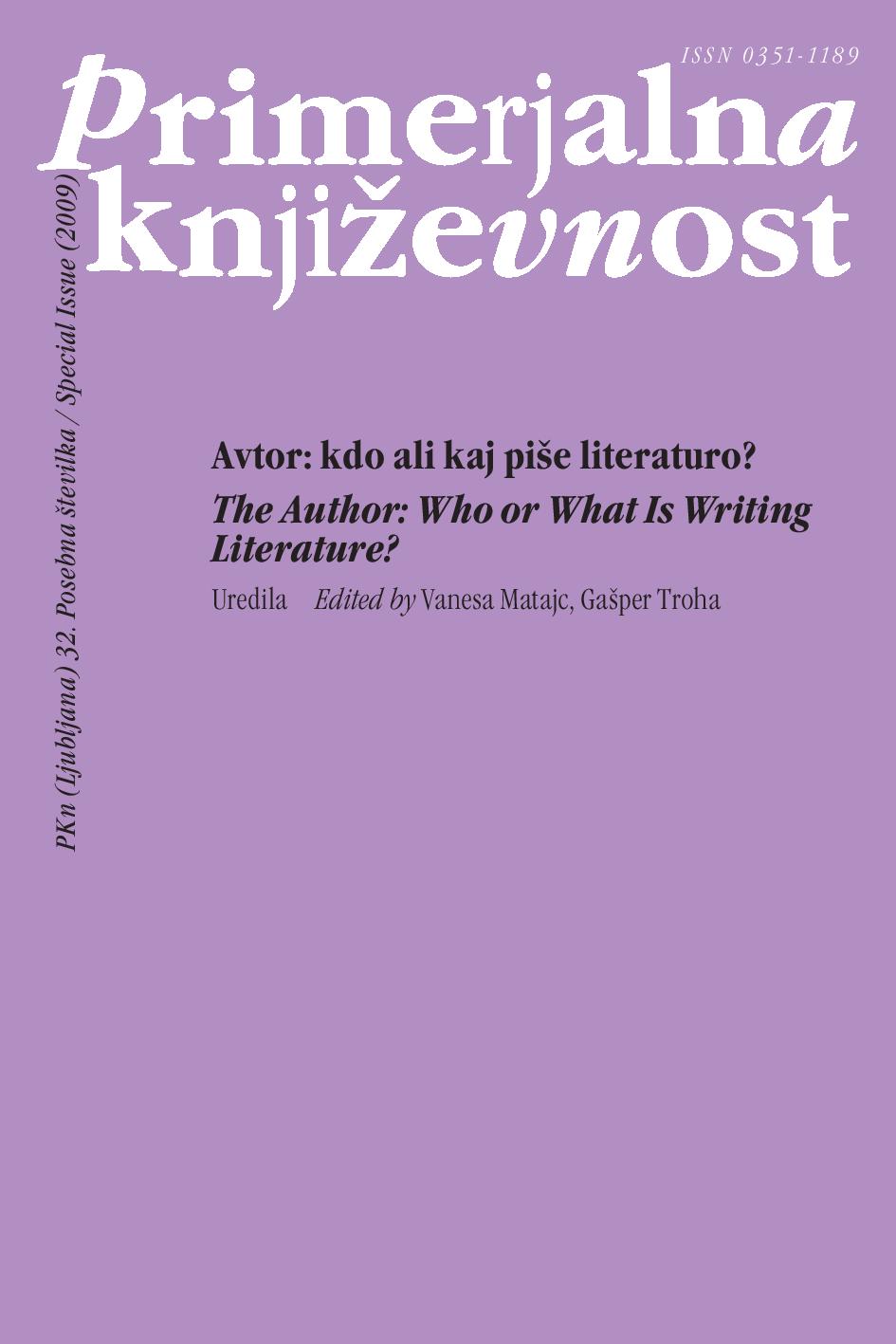The Author as the Psychological, Intellectual, and Moral Unity in the Slovenian Novel of the Last Third of the 20th Century
Keywords:
literary theory, author, authorship, autobiographical literature, Slovene novel, 20th cent.Abstract
In the Slovene novel of the last third of the 20th century the majority of literary protagonists deal with a question of relationships between an individual and society. Literary work hence puts up a moral and ethical mirror to the current society. In images of authors in various Slovene novels it is possible to reveal reflections of mentality of a novelist as a spokesman of national aspirations and the indicator of a condition of modern society and culture. The factor of “author’s will” in itself is indissolubly connected with the act of creation of a literary work. The artistic image always depends on a subjectivity of its own creator. In each literary work the author solves many important moral, historical and philosophical questions both for itself and the society. Thus, in private stories and personal problems a modern novel allows us to understand the general development of the society and culture of Slovenia on a way to democratic transformations at the end of the 1980s and during the strengthening of the new state in the 1990s.References
Bahtin, Mihail M. »Avtor in junak v estetski dejavnosti«. Prev. Aleksander Skaza in Ciril Stani. V: isti. Estetika in humanistične vede. Ur. Aleksander Skaza, prev. Helena Biffio idr. Ljubljana: Studia humanitatis, 1999.
– – –. Автор и герой. К философским основам гуманитарных наук. Sankt Peterburg: Азвука, 2000.
Kovačič, Lojze. Resničnost. Ljubljana: Mihelač, 1995.
Sozina, Julija A. »Avtor in glavna literarna oseba v slovenskem avtobiografskem romanu sedemdesetih in osemdesetih let 20. stoletja«. Slavistična revija 2 (2002): 199–217.


